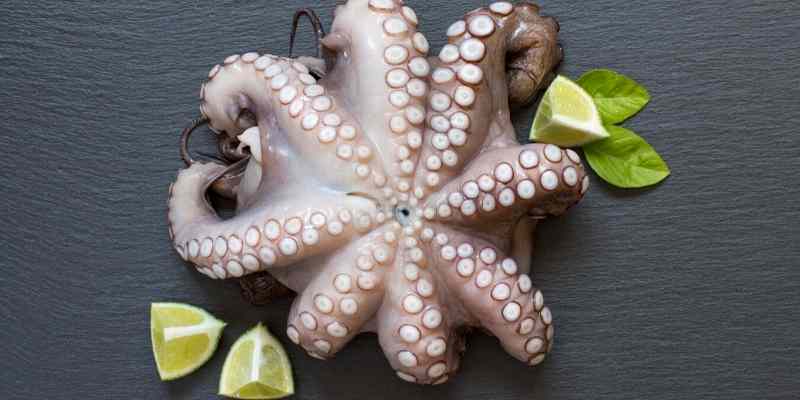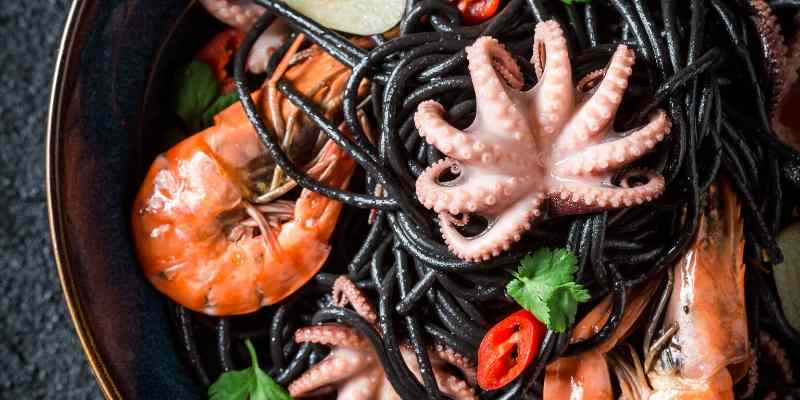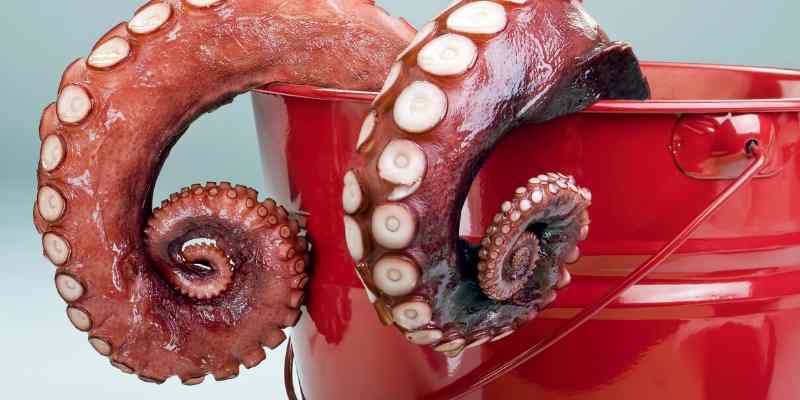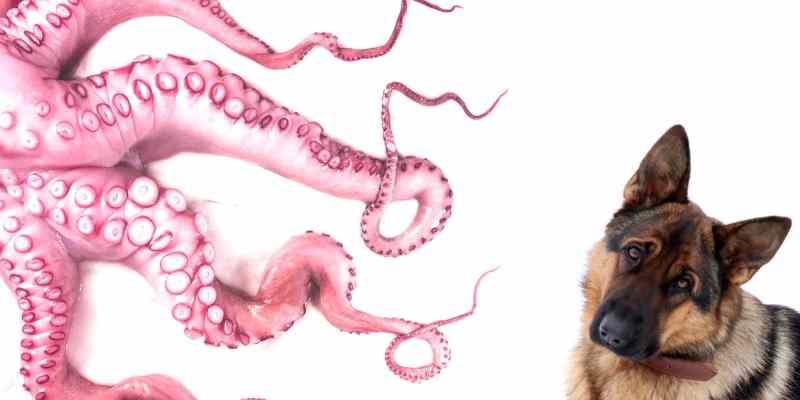Fish is an excellent source of nutrients and proteins in dog food. But can we say the same for octopus? Yes, all seafood has essential elements for the growth of your pup.
Octopus meat is a source of healthy fats, Omega 3, and Vitamin B12. And all those nutrients contribute to the overall health of your dog. But let’s get into the nitty-gritty of sharing octopus with your pet because there are always both right and wrong ways of doing it.
Are you interested in a specific question related to dogs and octopuses? Then use the table of contents below to jump to the most relevant section. And you can always go back by clicking on the black arrow in the right bottom corner of the page. Also, please note that some of the links in this article may be affiliate links. For more details, check the Disclosure section at the bottom of the page.
Can dogs eat raw octopus?

No. As with any other raw produce, the octopus can be packed with germs. For instance, in this study published in 2006, a group of researchers from Greece examined a wide range of randomly selected seafood samples for the presence of potentially pathogenic microorganisms potentially pathogenic. They found Aeromonas hydrophila (can be even fatal for dogs) in 78% of octopus samples, Proteus vulgaris (a common cause of urinary tract infections) in 26% of cases, and many more. Another study found that octopus can also be polluted with leads.
The concentration of lead in the muscles and liver of Octopus cyanea ranged from 0.01 to 21.6±2.41 μg/g. On the other hand, the concentration of lead in sediment ranged from 6.33±0.39 to 13.85±3.31 μg/g.
And as stated by the World Health Organization: “There is no level of exposure to lead that is known to be without harmful effects.”

Can dogs eat cooked octopus?
The cooked octopus will be a preferable choice if you want to share it with your pup. According to the USDA (United States Department of Agriculture) Food Database, the 100g serving of steamed octopus contains 163 calories, 29.62g of protein, 4.37g of carbs, and 2.07g of fat.
On top of that, it has plenty of vitamins and minerals, e.g., 105mg of Calcium, 9.48mg of Iron, 277mg of Phosphorus, 626mg of Potassium, and more.

So, it would still be the same great source of nutrients but without all those bacterias. Also, studies had found that cooking actually helps to decrease the level of heavy metals (including lead) in the produce. (E.g., this one from 2018 in Food Science & Nutrition published by Wiley Periodicals, Inc.)
So you can give cooked octopus to your canine. The key is to stay away from spices, salt, and pepper and only feed it to your dog in moderation.

Can puppies eat octopus?

Pups do not always adjust to sudden food change. So, if you introduce too many new foods to your dog, it can affect the pup’s digestion. So it is safer to feed them with small amounts of anything new (including octopus) at a time for easy digestion and check for potential reactions. And better yet, consult your vet before making any significant changes in puppy’s nutrition.

Can dogs eat dried octopus?
Your pup shouldn’t eat dried octopus as it’s much higher in sodium (1313mg in 100g) and cholesterol (182mg in 100g) than the steamed version. And it also can contain a range of artificial preservatives and taste enhancers.

Can dogs eat canned octopus?
Octopus has many benefits for dogs. But overall, it’s not recommended to share any canned food with your pup, including octopus. The canning process lowers the nutritional value of the meat. And also, you’ll find some additional (and in most cases harmful) ingredients in that type of product, starting from excessive amounts of salt and other unhealthy spices, along with artificial preservatives and flavors.

Dogs and Octopus Summary
Overall, the octopus can be a good novel protein snacking choice for your dog. You only have to make sure that the serving size is small and that it cooked pup-appropriately (steamed/boiled with no spices). But it always makes sense to consult a vet before sharing it with your dog for the first time.
Thanks for the blog graphics: Canva.com


